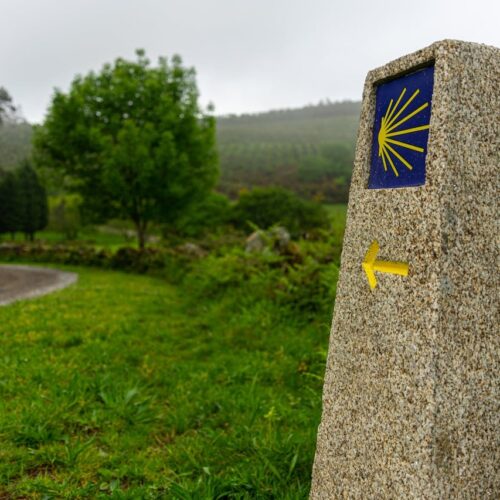Ensuring one’s safety and welfare during international travels involves thorough preparedness for any unforeseen circumstances. Staying safe when visiting foreign countries has never been more important!
In this piece, we go over some crucial advice for being prepared for emergencies while travelling to another country, with a focus on the importance of insurance and personal injury claims solicitors.
Emergency Preparedness Guidance
Proactive measures can significantly alleviate risks, protect your loved ones, and maintain some control amid the most testing times.
Understanding Your Destination
Before embarking on your journey, devote time to investigating your destination. Familiarise yourself with the local customs, rules and potential safety concerns.
Determine if any travel alerts or advisories are currently in place for your chosen locale. The UK Foreign, Commonwealth & Development Office (FCDO) presents timely travel advice for UK nationals travelling abroad.
Document Preparation
Ensure the validity and accessibility of crucial documents like passports, visas and travel insurance papers before your departure.
Keep copies of these vital records in a secure location such as a password-protected digital folder on your mobile device. This ensures immediate access to important details in the event of loss or theft.
Embassy Registration
If you are embarking on a longer trip than a usual holiday, consider registering with the local British embassy or consulate.
This connection can facilitate faster and more efficient help during emergencies such as natural disasters, civil unrest, or personal complications.
Communication Strategy
Create a communication plan involving your family and friends before you set off. Share your travel itinerary and accommodation contact details with them.
Establish regular check-in intervals and contingency contact arrangements if your usual communication fails.
Environmental Awareness
Be wary of your surroundings when in unfamiliar territories. Avoid any situations causing discomfort or potential danger and trust your gut – if the situation you are in makes you uncomfortable, leave.
Acquaint yourself with local emergency contact details and the nearest British embassy or consulate’s location.
Emergency Kit Essentials
Your emergency kit should include a first-aid box, flashlight, whistle, water purifying tablets, and non-perishable food.
Additional essentials like an extra mobile phone charger and a portable power bank can ensure your devices are always charged during emergencies.
Insurance and Personal Injury Solicitors
In planning for emergencies during overseas travel, consider the potential financial and legal ramifications of unexpected incidents.
Comprehensive Travel Insurance
Investing in an exhaustive travel insurance policy can offer significant protection against financial losses during emergencies.
Ensure your policy covers personal liability, loss or theft of personal items and luggage, and medical expenses. Policies that include emergency evacuation and repatriation are also worthwhile.
Be sure to choose a policy that suits your needs and covers all activities you plan on partaking in during your holiday. Be aware that some policies may not cover certain high-risk activities such as paragliding, quad biking or jet skiing. If you’re participating in any specialised sports, confirm that your intended policy covers these activities.
Personal Injury Claims Solicitors
In the unfortunate event of injury due to another’s negligence during your travels, a personal injury claims solicitor can guide you in seeking compensation. These solicitors are skilled in managing claims related to accidents and injuries incurred abroad.
Claim Types
Personal injury solicitors can assist with various claims pertaining to accidents abroad, including those caused by falls and slips, working abroad-related mishaps, and even accidents occurring during leisure activities.
Claims Procedure
Navigating foreign legal systems and languages when filing personal injury claims can be daunting. Personal injury claims solicitors can ease this process by determining whether your case can be brought to the Courts of England and Wales. Communicating with foreign insurers and solicitors, collecting evidence, and advocating on your behalf. They can provide valuable guidance on necessary steps post-incident or injury.
Time Constraints
Be familiar with varying personal injury claim deadlines based on the country where the accident occurred. Sometimes, these time frames could be shorter than in the UK. Contacting a personal injury claims solicitor as soon as possible post-accident is crucial to ensure your claim is lodged within the requisite period.
Evidence Collection
Collecting substantial evidence to support your personal injury claim is paramount. This could include photographs of the accident site, witness testimonies and medical reports.
Personal injury claims solicitors can help you procure the necessary documents and suggest the optimal approach to bolster your claim.
Compensation
A successful personal injury claim could yield compensation to cover medical expenses, lost income and compensation for pain and suffering. The amount of compensation can be significantly influenced by the severity of the injury, the accident’s circumstances, and the law that applies to your claim.
Prioritising your safety and wellbeing during international travel necessitates being equipped for emergencies. Comprehensive travel insurance and the expert advice of a personal injury claims solicitor can provide invaluable assistance in the event of an accident or injury.
By following the guidance outlined in this article and seeking professional help when required, you can mitigate potential hazards and experience a safer, more enjoyable trip.




